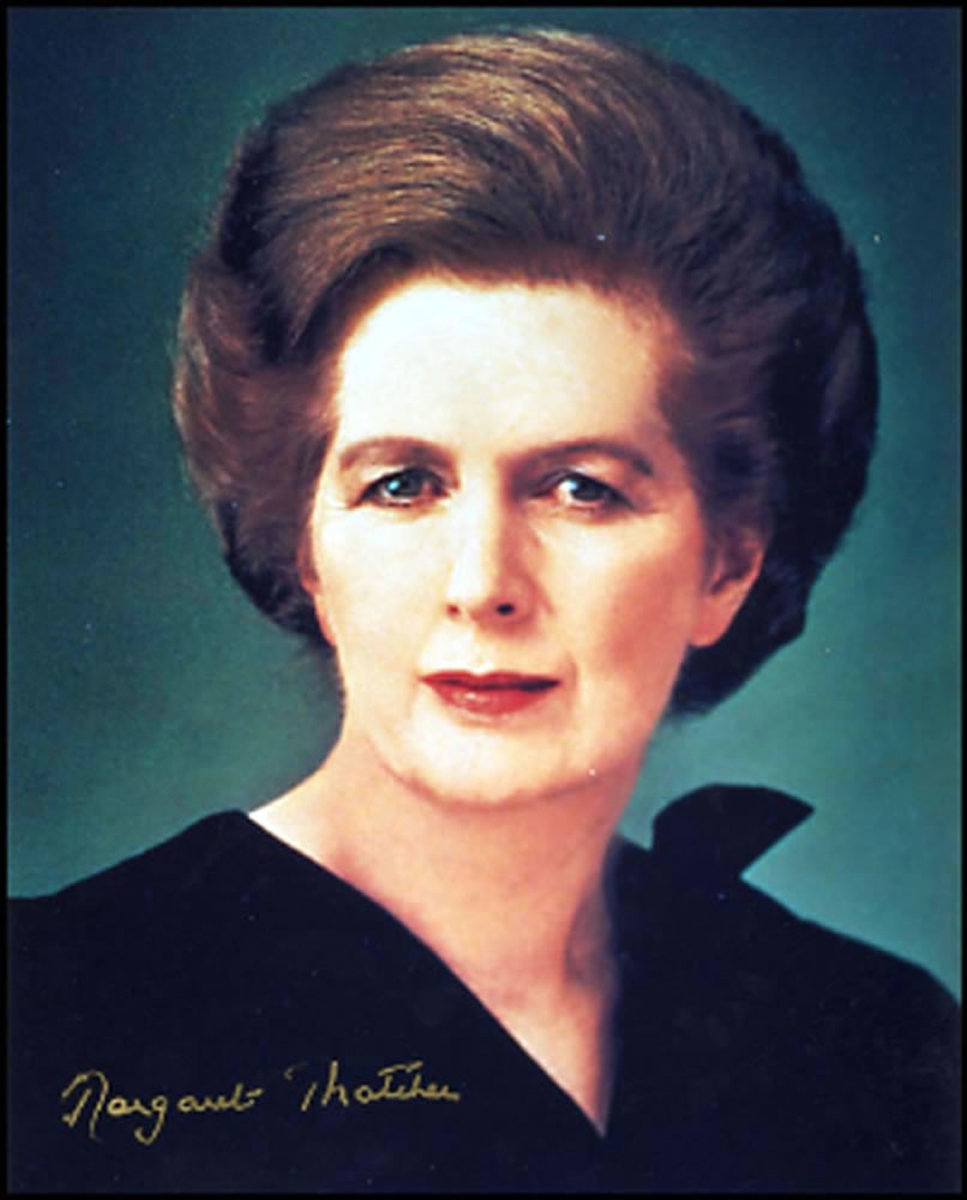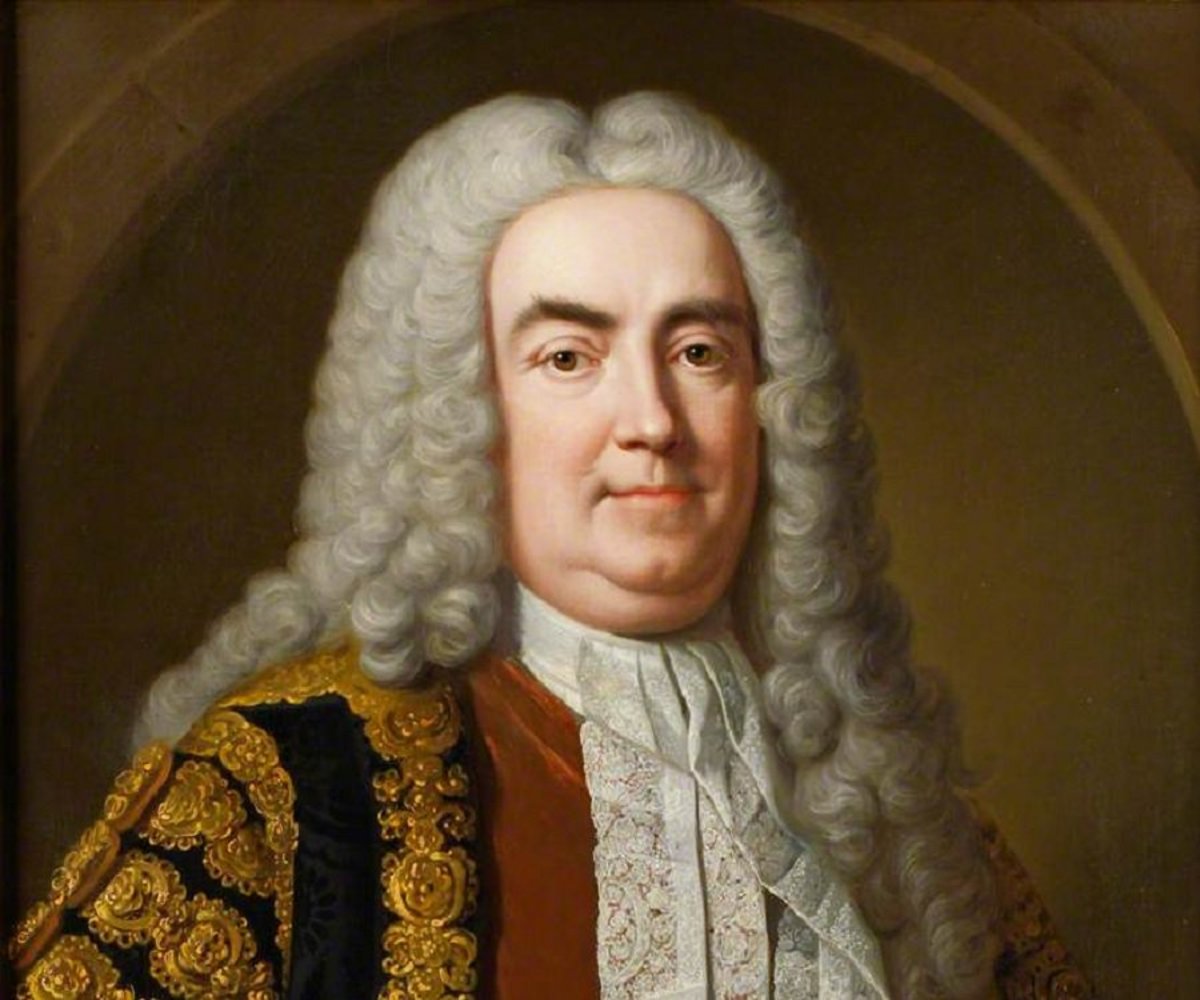Baroness Margaret Thatcher of Kesteven: A Tribute
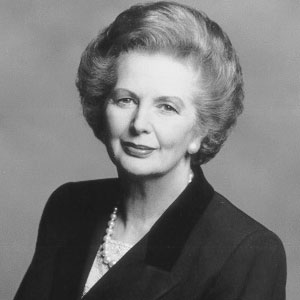
2pm, Monday the 8th of April. My Facebook NewsFeed quickly became filled with status updates about the passing of the UK’s longest serving Prime Minister of the 20th century, Margaret Thatcher. Some statuses were genuine and included heartfelt remarks about her life and time in office and wished her to ‘R.I.P.’ However, I was shocked to witness one particular status: ‘Ding dong the witch is dead’. This appeared twice, and I am ashamed to say, came from people that are from my generation (early 20s). This is, first and foremost, a highly offensive and blatant rude remark to make of the recently passed, but it also begged the question: what qualified this age group to speak ill of her as a politician and as a person?
Jumping on the band-wagon
Thatcher resigned from office a few days before I was even born, and I can say with confidence that these people are of a very similar age, so therefore know very little (or even nothing!) of her decisions and policies during her time in office, unless they have done extensive background reading. It became obvious to me very quickly that these people were jumping on the ‘Thatcher was evil’ band-wagon. It also became clear that this opinion of the late Baroness was not just restricted to certain members of my generation. Of course, it is not unknown that she was either loved or loathed. Nonetheless, in the knowledge of this fact, why do a hefty percentage of the public still feel it is acceptable to berate and curse this woman, even after her death? Why was such a strong divide caused among the nation as a result of Thatcher’s eleven and a half years as head of our nation? And, why is it that she is sometimes regarded as one of the greatest Prime Ministers of the UK (akin to Churchill and Attlee), yet despised and labelled as the worst leader of Great Britain from the past 100 years by others?
Road to ultimate responsibility
It must not be forgotten that Thatcher was Europe’s first female political leader and Great Britain’s first (and only) woman Prime Minister. To have broken through in the patriarchal age of the 1950s and to gain recognition as a blossoming politician is to be highly commended. She qualified as a barrister in 1953 (but was already trained as a chemist by her BSc degree from Oxford!), and in the same year had her twins, Carol and Mark, and in doing so became a mother. From that year onwards Thatcher had a family to juggle, but still fought hard -despite previous failures in 1950 and ’51- to become the MP for Finchley in 1959. After a couple of promotions during the 1960s, she was made Education Secretary and Cabinet Minister in 1970, a position which she held until 1974. Up until this latter year, Thatcher had no amorous ambition to achieve any higher ranking among the cabinet than which she was then currently at. But achieve a higher ranking she did, and in 1979 became Prime Minister after being elected to party leader and ‘Leader of the Opposition’ in 1975.
I find it extremely difficult to comprehend the minds of those that were dancing in the streets mere days after this remarkable lady’s death. This woman was fiercely proud of her birth land, and dedicated her whole life to making it a better country, and we should be thankful for that, if not anything else. If these brain addled youths had an ounce of sense and compassion, they would soon come to realise that it was Lady’s Thatcher’s downright single-mindedness, tenacity and resolute determination that made this nation a force to be reckoned with after its sad decline in the 1970s. I do not believe for one moment that we would have risen from the putrid ashes as triumphantly as we did if we had been under the not-so-watchful eye of Edward Heath, James Callaghan or even William Whitelaw.
“The problem with Socialism is that you eventually run out of other people’s money.” - M.T
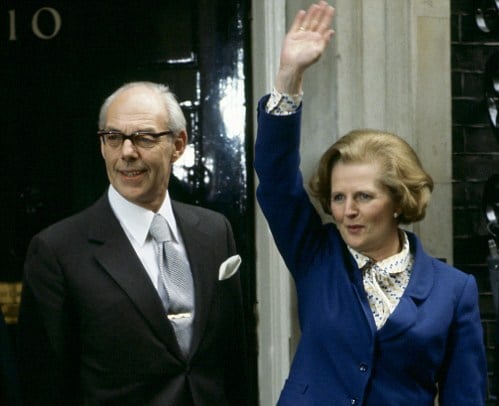
Thatcherism vs. Socialism
In a pre-emptive move to those who oppose Thatcher and all she stands for, it would be sensible to provide a detailed view of the controversial successes of her time in office.
She had a yearning to abolish Socialism through economic efficiency, and so began her time as PM with the privatisation of many national industries including British Gas, British Steel, British Telecom, Jaguar, Rolls Royce and British Airways amongst others. It was of general consensus that privatisation would hopefully mark the healing of the early 80s recession, and go on to benefit the U.K in the long term. And, it did. I believe a huge proportion of the older generation fail to realise that what felt like huge economical setbacks in the 1980’s were actually short-term blows that led to long-term gain, a view that Margaret stood firm by, and rightly so.
It is an unfortunate common misconception that Margaret was the sole contributor to the closing of the coal mines across England. How parochialist! In order to fully understand this area of Thatcherism, it is imperative to delve back in time. In the early 1900’s there were around 3000 pits, which collectively produced 300 million tonnes of coal per annum. By 1947 this production figure had dropped to 200 million due to the nationalisation of the industry. Nine years later the figures had remained unchanged, despite the ‘Plan for Coal’ that had installed £520 million in 1950. At this stage it was evident that demand was exceeding supply, and the search for alternative energy had led to oil. This intensifying need to rely more upon oil was one of the first signs of injury to the coal industry; it was bleeding out, and profusely. By the time Thatcher’s government inherited the UK’s economic catastrophe in 1979, only 300 out of an original 3000 pits had remained. Yes, around 2700 mines had closed under the likes of Harold Wilson and James Callaghan, not Thatcher. Thatcherism would not stand for the death of an area of commerce when treatment could be provided, and it therefore poured a total of £250 million into the industry in a vain attempt to patch the gaping wound. But it still was not enough. It had become laughable that the taxpayers of the so-called ‘Great’ Britain had to pay people to buy British coal to make up the demand. Enough was enough; Thatcher would not have her country jeered, and she therefore began the entirely necessary procedure of closing down some of the few remaining economically unviable coal pits (John Major closed the rest after privatisation in 1994). The key word here is ‘necessary’.
The Housing Act of 1980 became a well known policy of Thatcherism. This ‘Right to Buy’ Act gave 5 million council house tenants the right to buy from their own local authority. Of course, many could still not afford to do so, but, for those that could, what a beautiful opportunity that was. It not only inspired people with hope for a financially more secure life for their respective families, but also for the generations after. It would be plain silly to disregard the fact that some people could not afford their mortgage payments due to the recession of the early 1990’s and therefore had their houses repossessed or even proclaimed as having ‘negative equity’. Unfortunately, where there is good, disappointment will always be lurking close by.
Those of a rather uneducated and distasteful opinion of the late Iron Lady must ask themselves the following questions. Do we really want to see a 3 day working week again? Unsanitary waste bags piling up on the streets? What about black-outs and power-cuts? Perpetual trade union strikes? Inflation around 25%? Political leaders doing U-turns?
“To those waiting with bated breath for that favourite media catchphrase, the U-turn, I have only one thing to say: You turn if you want to. The lady’s not for turning.” - A famous excerpt from Thatcher’s speech to the Conservative Party Conference (10th October 1980) in which she expertly voiced her refusal to U-turn.
It is true that unemployment hit a staggering 3 million by 1982, and did not properly begin to decline until 1986. However, despite these shaky figures, Thatcher again stood her ground and had an almost innate foresight to know that better days were to come. Very few male politicians would be able to hold their head high and plough on through the manure of economic crisis, but for a woman to achieve this feat, and to do it with such poise, eloquence and style was just delicious to witness. Even the 1982 IRA bomb attack on the Grand Hotel in Brighton, failed to unnerve her, and, in an act of defiance, arrived the next morning to her Conservative Party Conference as planned.
The introduction of ‘Poll Tax’ or ‘Community Charge’ in 1989 caused a great divide among the nation. In my opinion, I do not think that this was a wholly wrong move on her part. I feel the Poll Tax would be much better utilised for our housing system of today. It enrages me, and many other patriots, that the Council Tax is a sum of money that can simply cover all the occupants of one household. Here, I am alluding to the fact that as many as ten or twelve people of ethnic minority can be crammed into one semi-detached 3 bedroom property, but still only pay one fixed amount for the privilege. People should be responsible for themselves. Life is no pretty picnic followed by a ticker tape parade. I sympathise with those that endured, and are still enduring, financial hardship but Thatcher knew what was best for the greater good, and had the gumption to see her plans through to completion.
“People on all levels of income are better off than they were in 1979. The hon. Gentleman is saying that he would rather that the poor were poorer, provided that the rich were less rich. That way one will never create the wealth for better social services, as we have. What a policy. Yes, he would rather have the poor poorer, provided that the rich were less rich. That is the Liberal policy... You do not create wealth and opportunity that way. You do not create a property owning democracy that way. ”- Margaret Thatcher (on November 22nd 1990, House of Commons) in response to protests from the opposition that the gap between the richest and poorest 10% had substantially widened.
And what about letting the Argentines help themselves to our islands in the southern Atlantic? Drawing attention to this last question: were we ever really going to relinquish the Falklands? It was only 37 years before 1982 that we had refused to surrender, and successfully protected our nation from the grasping clutches of Nazi Germany. To not protect our islands would look dangerously cowardly. As a lady of principle myself, I can understand why Thatcher felt it part of her duty not only as PM, but also as a Briton, to strike back and do whatever was necessary to retain and nurture what is truly ours. This concept not only applies to the Falklands, but also to the maintenance, preservation and survival of our economy today.
They'd rather have the poor poorer!
“Thatcher: the best man in England.”- Ronald Reagan
Behind every great woman, lies a great man. Lady Thatcher adored men that were strong, virile and full of conviction, yet had no time for slovenly, corpulent unoriginal thinkers. Through her astute judgement of character, great friendships were forged, especially with the late Ronald Reagan, former President of the United States, and Mikhail Gorbachev, former President of the Soviet Union. It was quite fortuitous that Reagan came into power a year after herself, and so the two relentlessly worked for the appeasement, and eventual ending of the Cold War. As for Gorbachev, the lady herself declared that he was “a man that I can do business with.”
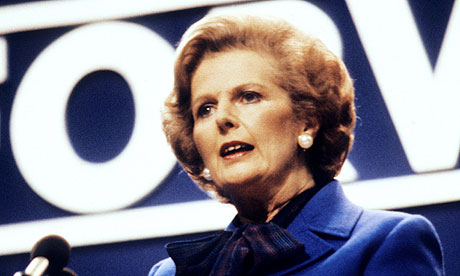
Majestic tendencies
It cannot be ignored that she became rather regal towards the late 1980s. For example, upon the birth of her first grandchild in 1989, Maggie famously announced “we have become a grandmother” outside the steps of No.10 Downing Street. Oh, dear. There it was: the royal ‘we’. Whether the success of her 3 terms in office had started to go to her head or she really was just overcome with joy for her family, I do not personally know. I am certain of one thing, however, and it is that this later majestic exudation from the late PM led to the working classes noses’ being rubbed in the dirt. Many UK citizens today still bear a sore grudge, and I am sure that Thatcher’s callous and ruthless exterior did not exactly help in winning the masses over.
Stiff upper lip to the very end
What is quite saddening is that, despite her unrelenting work ethos, and the many late nights spent trying to get ahead of the game, the final months of her time in office were shockingly embarrassing. Cabinet members had had enough of being belittled in front of colleagues, and certainly after Geoffrey Howe’s bitter resignation on the 1st of November 1990, the palpable tension in the House of Commons took a turn for the worse. Upon her return from a European Common Market meeting in France, it was clear that her cabinet had imploded, and Michael Heseltine was only too ready to have the chance of jumping in her never-to-be-filled boots after her own inevitable resignation at the end of that month.
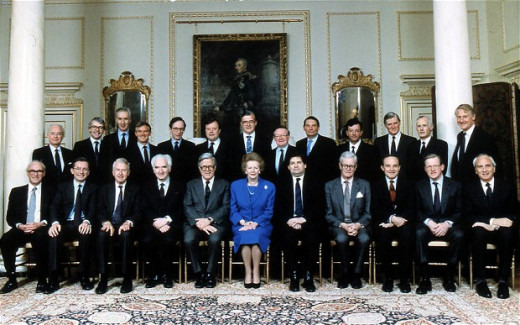
A woman's touch
In the closing remarks of this article it would be wise to remember that this extraordinary lady was not just a world-wide famous politician, but also a mother and a grandmother. Would you disgrace your beloved parents in the manner that these street party-goers or teenage ne’er-do-wells are doing? For the sake of your conscience and your soul, I hope not.
R.I.P. Mrs Thatcher. I, for one, shall never underestimate a woman’s touch.
“Watch your thoughts for they become words. Watch your words for they become actions. Watch your actions for they become habits. Watch your habits, for they become your character. And watch your character, for it becomes your destiny! What we think we become.” - Margaret Thatcher.
Image references
DAILY MAIL, (2013). Retrieved April 19th, 2013 from www.dailymail.co.uk/news/article-2305754/America-lost-true-friend-Obama-leads-tributes-British-prime-minister-Margaret-Thatcher-dies-aged-87-stroke.html.
GUARDIAN, (2013). Retrieved April 19th, 2013 from www.guardian.co.uk/politics/blog/2012/jan/09/executive-pay-margaret-thatcher.
TELEGRAPH, (2013). Retrieved April 19th, 2013 from www.telegraph.co.uk/women/womens-politics/10000680/Margaret-Thatcher-through-the-eyes-of-Labour-women.html.
© 2013 Nose-in-the-News

